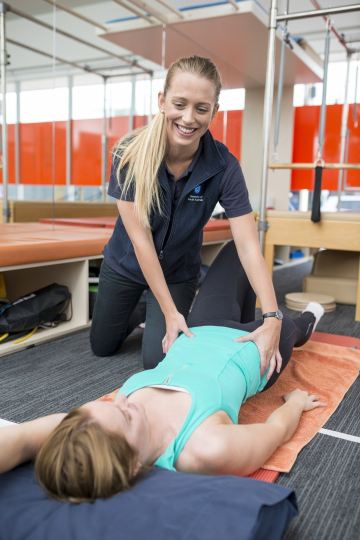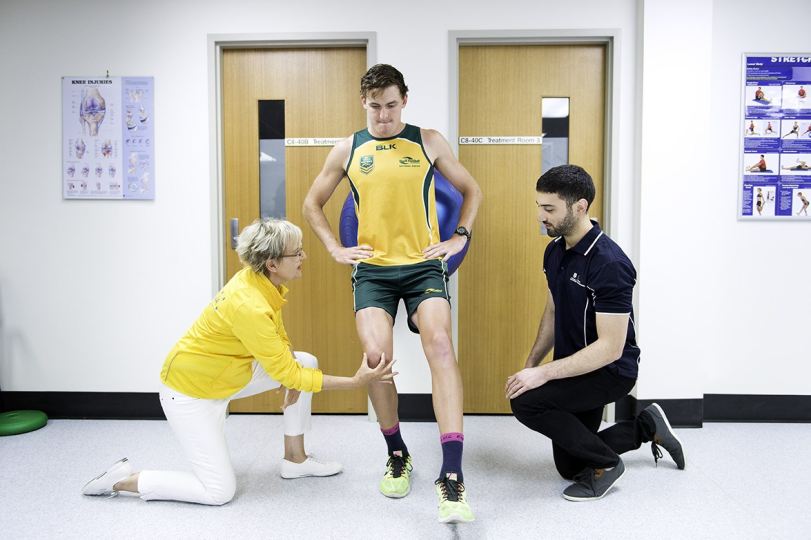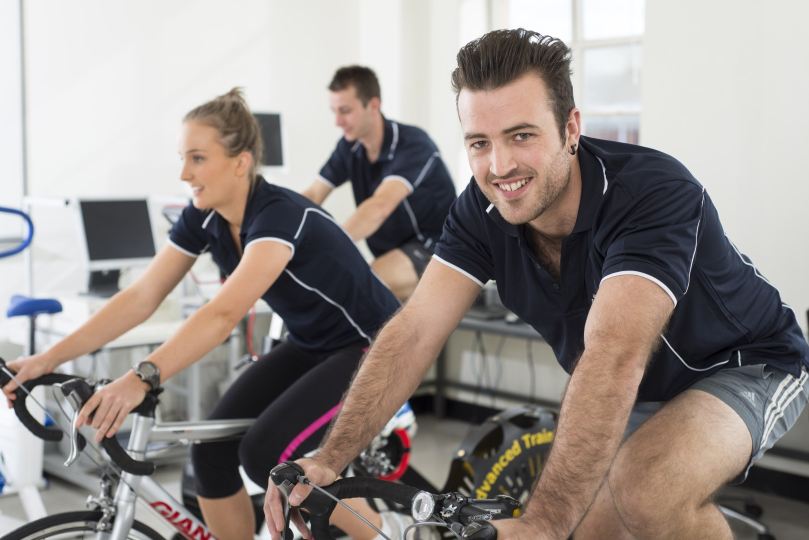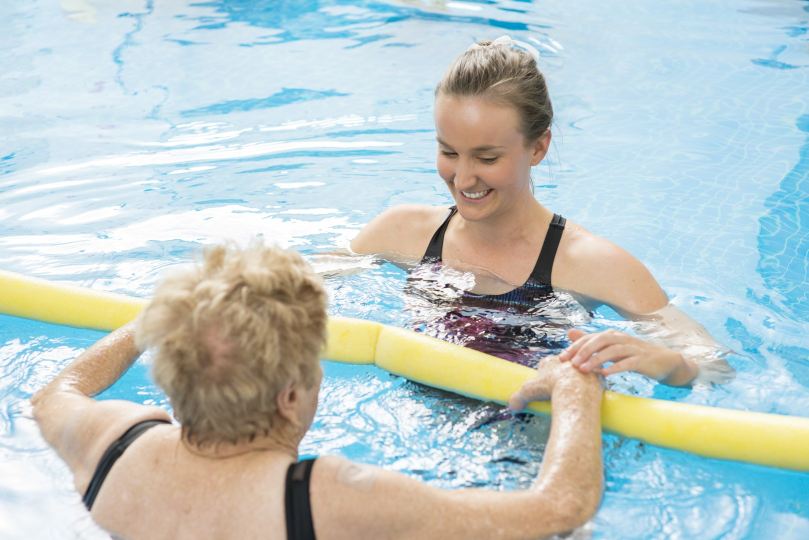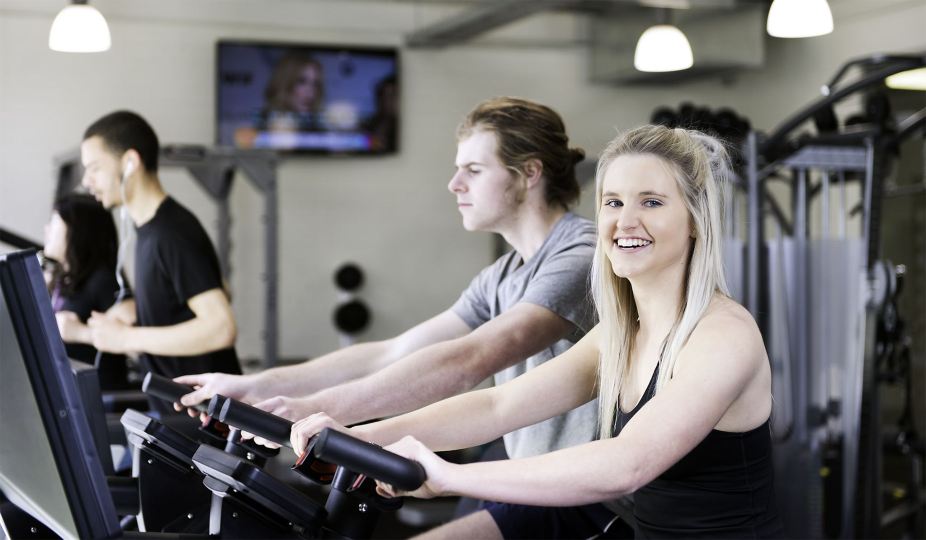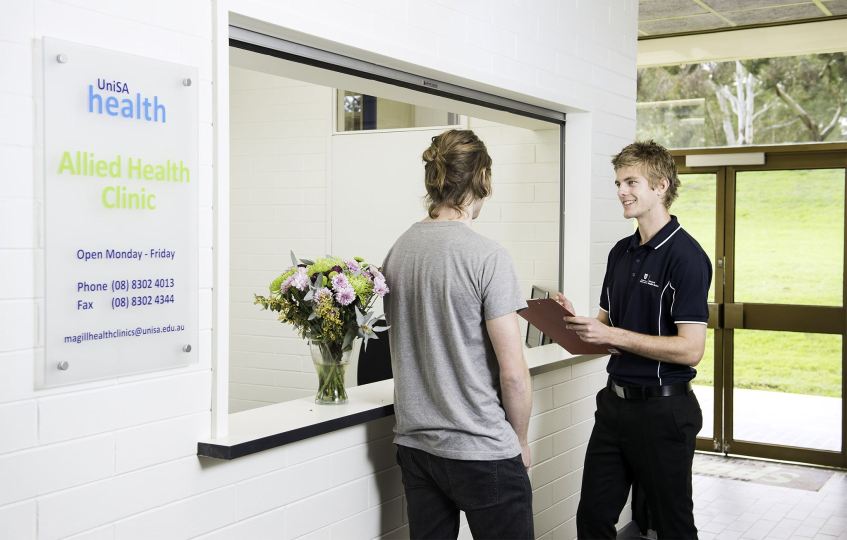Bachelor of Physiotherapy (Honours)
Degree Level Undergraduate
Year 2025
You're considered an International student if you are:
Degree Level Undergraduate
Year 2025
Program Code
IHPZ
Prerequisites
None
Assumed Knowledge
SACE Stage 2 Physics
SACE Stage 2 Biology
More info
Fees
AUD$ 44,300 per annum (per 1.0 EFTSL) for students enrolled in 2025
Admissions
Student Profile
International Admission by Country
See full entry requirements
CRICOS Code
088338B
The admission criteria have been grouped to assist you to easily find the information most relevant to your circumstances. However, you may fit into more than one and the university will consider applicants against each of the relevant criteria.
Certain conditions apply. For more information refer to Appendix 4 of the University's Selection and Entry policy.
Applicants are required to meet one of the following criteria with a competitive result, and demonstrate that they fulfil any prerequisite requirements and essential requirements for admission:
Recent secondary education
Meet any prerequisite requirements with a minimum grade of C- or equivalent
AND
Applicants who have not achieved the Selection Rank required for automatic selection may be selected for any remaining places based on the grades of their year 12 subjects.
OR
Higher education study
OR
Vocational Education and Training (VET)
OR
Work and life experience
| Bangladesh HSC | 5 |
| Canada High School (OSSD) | 90 |
| Eynesbury FSP | 415 |
| German Abitur | 1.8 |
| Kenya KCSE (average) | A |
| Malaysia STPM (best 3) | 12 |
| Malaysia UEC | 20 |
| Norway GPA | 5 |
| Pakistan HSSC | 90 |
| Sri Lanka A Levels (best 3) | 12 |
| Sweden GPA | 18 |
| UK Board GCE A Levels/HK Board | 12 |
| Vietnam | 9.5 |
| Australia | 93 |
| IB (best 6) | 35 |
| USA SAT (1600) | 1465 |
| India (best 4) State Board | 95 |
| India (best 4) Central Board | 85 |
| HKDSE | 22 |
| Nepal NEB | 3.41 |
Become an expert in the structure and function of the human body, and help enable people of all ages to lead healthy lives.
Graduate ready to join one of Australia’s most in-demand allied health professions by studying South Australia’s first fully accredited physiotherapy degree.
Complete 45 weeks of practical experience in UniSA’s student-led physiotherapy clinics and industry-based clinical placements in areas like acute care, rehabilitation, paediatrics, aged care and disability, musculoskeletal and sports physiotherapy.
Graduate competent and confident to work across all areas of physiotherapy's scope with a respected honours degree, with opportunity to specialise in research or professional practice.
Study a contemporary and culturally diverse curriculum informed by above world-class research in physiotherapy.1
Learn from award-winning teaching staff, including practising health professionals and expert researchers at the forefront of their fields.
Benefit from our strong links with industry to kick-start your career.
UniSA is an unstoppable university for unstoppable people. As one of the World’s Top Young Universities,2 we’ll ensure you get the experience your future profession demands so it’ll feel like you’re studying one minute and in a career the next.
1Results in Clinical Sciences - 2018 Excellence in Research for Australia (ERA). 2Ranked #43, 2024 THE Young University Rankings.
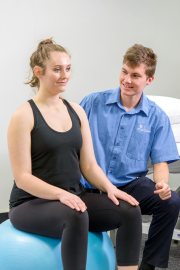
Kickstart your unstoppable career helping people to reach their full potential, and lead healthy, functional lives as an accredited physiotherapist. This four-year honours degree will develop your expertise in the prevention, assessment and management of health conditions across the full lifespan.
As a registered physiotherapist, you’ll be one of the most sought-after allied health professionals in Australia. Pursue careers in a range of areas such as working with children, rehabilitation, acute care, disability, brain and spinal cord injury, musculoskeletal, sports and aged care.
Further study opportunities to specialise your scope of practice or increase your research capacities include a Master of Research, doctoral studies or the Master of Advanced Clinical Physiotherapy (Sports or Musculoskeletal).
Applicants who are overseas trained physiotherapists should explore their eligibility for registration with the Australian Physiotherapy Council before they apply for this degree.
Students who undertake activities where interaction with patients/the public is required for their degree, such as field or clinical placements/visits and in University clinics and gyms, must demonstrate they meet mandatory pre-placement conditional requirements. These include criminal history clearance, a Working with Children Check and immunisation requirements.
Please visit the Clinical Placement Unit for information on key requirements, and to access the full student checklists.
Physiotherapy is a physically and cognitively demanding profession. Please refer to the degree’s Rules and Notes for further information about what you’ll need to successfully complete this degree.
All students enrolled in a program leading to professional registration must be registered with the relevant national board. The registration process is undertaken by the Australian Health Practitioner Regulation Agency (AHPRA) with the University providing notification to AHPRA following enrolment in the program.
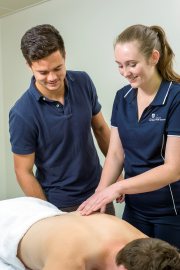
The Bachelor of Physiotherapy (Honours) will teach you to assess, treat and prevent health conditions across various areas of practice. This includes sport, musculoskeletal, cardiorespiratory and neurological disciplines.
You’ll start practical courses straight away and will learn foundational medical sciences in courses such as human anatomy and physiology. Social and psychological determinants of human health and function are covered in the inter-professional course Foundations of Health, where you’ll work with students studying podiatry, health sciences, occupational therapy and exercise physiology. You also begin your training in physiotherapy-specific skills from day one, starting with biomechanics and muscle assessment.
You’ll also study important aspects of pharmacology and movement analysis, challenge your understanding of the mechanisms and management of pain the biomedical model of health, and learn how to work collaboratively with patients to help them achieve their best outcomes. Experiential teaching is delivered through clinical placements that train you in the prevention and treatment of disease and disability.
You’ll graduate with qualifications to not only work as an autonomous practitioner concerned with prevention and management of disability and illness in the workplace or community, but also as a member of a multidisciplinary healthcare team. This holistic view of a patient’s health recovery is critical, especially across the different types of care needed for people of all ages.
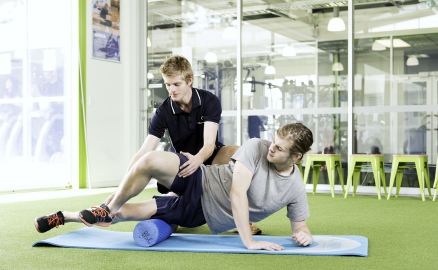
At UniSA, you’ll gain in-depth theoretical knowledge and practical skills required to excel as a physiotherapist with patient-centred care at the heart of your practice.
Graduating with an honours degree will set you apart from the crowd, ensuring you have a competitive edge and are well-placed for a career in industry, research or further postgraduate study.
At UniSA, you're encouraged to build your practical skills and industry relationships from day one of your degree. You’ll advance your knowledge and skills through supervised clinical placements across metro, rural and regional health settings, completing 45 weeks of practical experience across a variety of physiotherapy disciplines. Your learning is carefully designed to gradually reduce your need for support as you move toward graduation, to ensure you have the confidence and capacity to walk into a job as a new graduate physiotherapist.
You’ll benefit from the expertise of UniSA’s above world-class research in physiotherapy.1 We’ve been teaching in this field for more than 50 years and are proud of the rich knowledge base we’ve created. You’ll be taught by expert registered practicing physiotherapists and award-winning academics at the top of their fields throughout your studies.
You'll graduate with a degree that's accredited by the Australian Physiotherapy Council and satisfies the academic requirements for registration as a physiotherapist with the Physiotherapy Board of Australia. You will also be eligible for membership with the Australian Physiotherapy Association.
1Results in Clinical Sciences - 2018 Excellence in Research for Australia (ERA).
Find out where a career in physiotherapy could take you. Hear from UniSA graduate, Tristan Chai, about his role as Head Physiotherapist of professional men’s basketball team, Adelaide 36ers, as well as Owner of Good Physio.
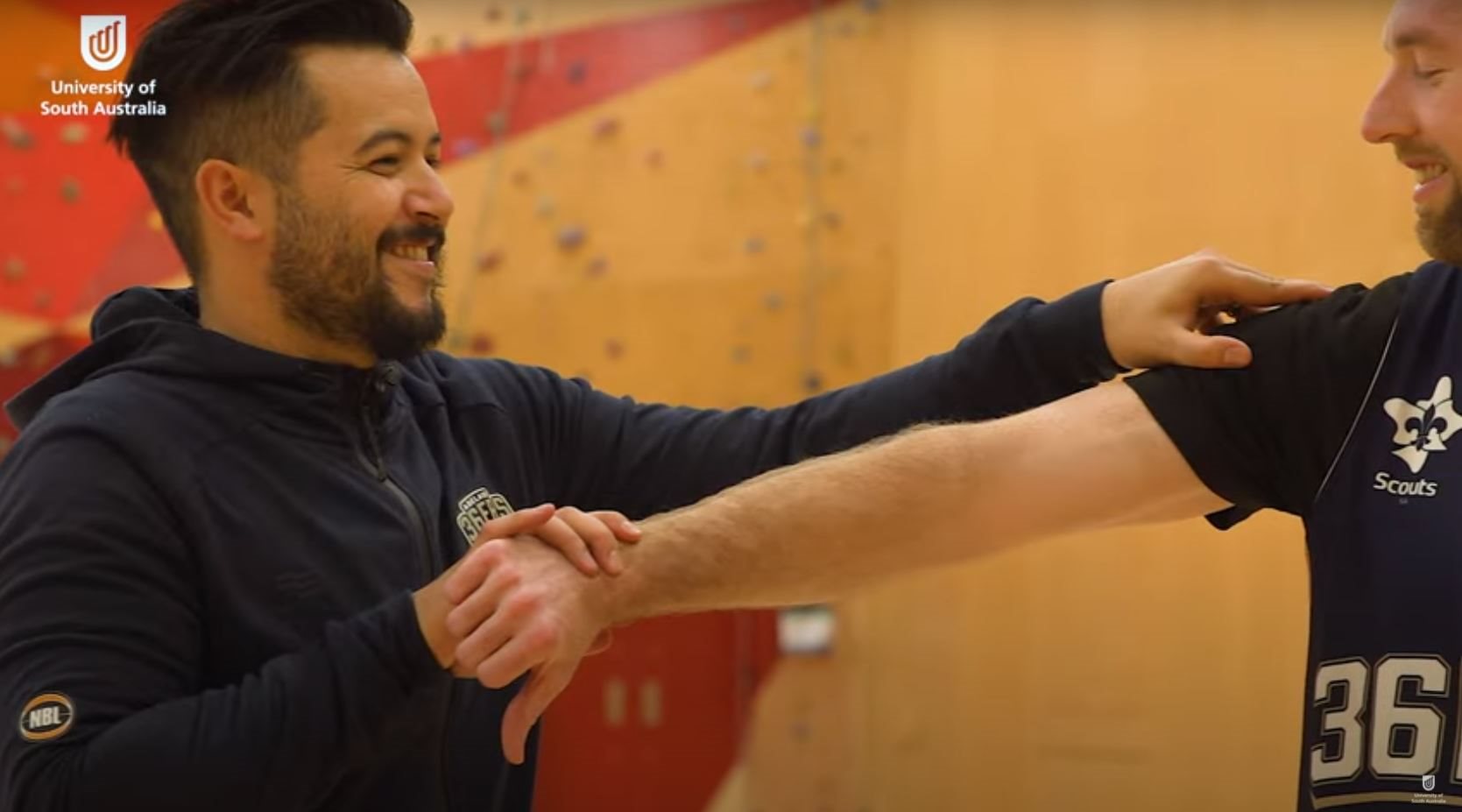
The demand for physiotherapists continues to grow with 9,400 new job openings projected to become available over the next five years.1
A successful physiotherapist is a biopsychological expert that understands the human body, but can also adeptly communicate, assess, manage and problem-solve a variety of issues for their clients.
Physiotherapists can work across management, administration, education, research, policy development, advisory and regulatory contexts. Industry settings can include:
Physiotherapists work across management, administration, education, research, policy development, advisory and regulatory contexts.
This qualification can also be used as a pathway to further learning, including a Master of Research, doctoral studies or the Master of Advanced Clinical Physiotherapy (Sports or Musculoskeletal).
1Australian Government National Skills Commission Employment Projections 2021.
The program is accredited by the Australian Physiotherapy Council and satisfies the academic requirements for registration as a physiotherapist with the Physiotherapy Board of Australia.
Successful completion of the program is accepted for membership of the Australian Physiotherapy Association
How to apply for international students will give you helpful information about the application process at the University of South Australia. When you are ready, apply through our International Application System. If you would like to talk to someone near you about studying at the University of South Australia, we have agents all over the world who can assist you. Find an Education Agent in your country.
Australian
There are other pathways you can follow to study this degree, including:
International
There are other pathways you can follow to study this degree, including:
Every year, over 2,500 UniSA students are supported in their studies through scholarships and grants worth millions of dollars. Check out the scholarships below. One of them may be perfect for you. Visit our scholarships page for more.
Recipients can get a 50% reduction on tuition fees for up to four years of full-time study for selected degrees.
Recipients can get a 15% reduction on tuition fees for the duration of their chosen degree.
As a UniSA student, you will have unique access to work placement opportunities, overseas study tours and exchanges, networking events, internships, guest speakers and more.
Our campuses are equipped with state-of-the-art facilities including modern lecture theatres, libraries, workshops and laboratories, as well as spaces that simulate real work environments. These are all supported by the latest technologies and a 24/7 online learning platform. We have health services on campus, gymnasiums, technology zones and great student lounges. You will also gain access to a range of community clinics, which provide professional and cost effective services in areas of health, business, law and psychology. There are campus sport activities to keep you active, and if you are keen to explore the social side of university life, there are movies, cooking demonstrations, parties and lots more.
Adelaide also has a variety of accommodation options to suit different requirements and budgets. Options include dedicated student accommodation and private rentals. See our long-term accommodation pages, or explore our student accommodation by Scape on Bank Street in Adelaide’s lively cultural precinct, an ideal location for students. It is within easy reach of UniSA’s city and metropolitan campuses, Rundle Mall shopping, the Central Market, Chinatown, and the West End’s vibrant nightlife. It is also across the road from the Adelaide train station, and on bus and tram routes.
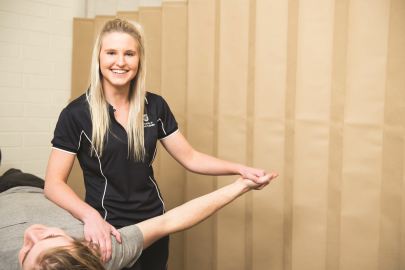
As a physiotherapy student you'll have access to purpose-built facilities, including:
You’ll also have access to a range of interesting on-campus spaces including collaborative teaching rooms and relaxed student lounges.
I have the privilege of directing a degree delivered by world-class researchers and educators, who support students to graduate with the knowledge and skills they need to work independently and meet the needs of our community. I strive to create innovative and safe learning environments that enable students to pursue excellence and fulfil their highest potential.
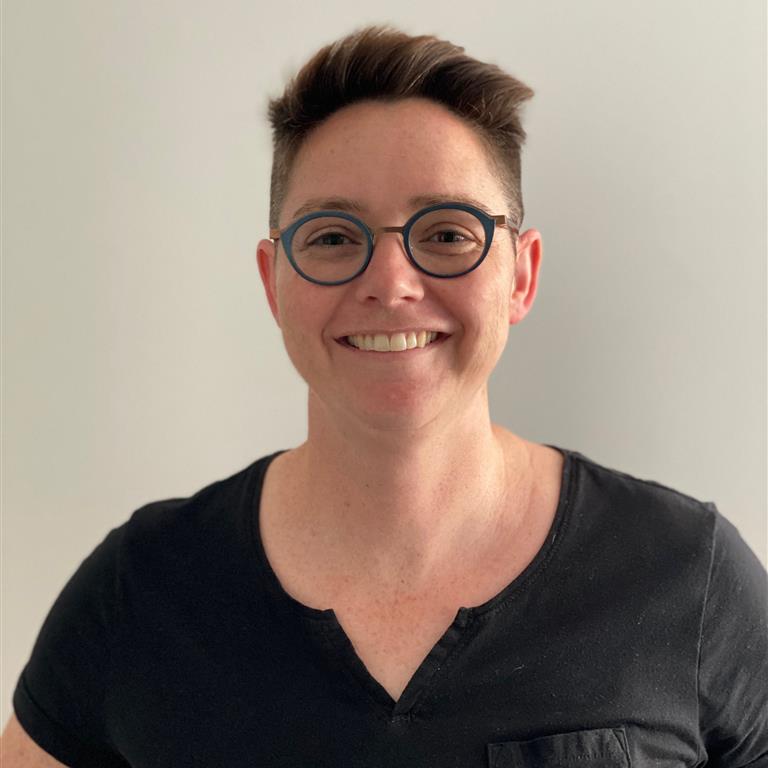
There are a number of ways to apply to study UniSA's undergraduate and postgraduate coursework degrees.
You can access our online International Application System through our How to Apply page. The International Application System is an easy and secure online application and acceptance process. You will have visibility of your application through the secure online portal with the ability to download offer documents, submit your acceptance and make a payment.
Alternatively you can submit an application through one of the University's registered Education Agents.
If you are completing an Australian year 12 qualification in Australia or overseas, or the International Baccalaureate (IB) Diploma Programme in Australia, you must apply through SATAC http://www.satac.edu.au/.
If you are applying for the UniSA Study Abroad or Study Abroad Plus program, you can submit your application online here.
Postgraduate study by research
For information on applying to do postgraduate study by research, including Masters by Research, PhDs or Doctorates, please visit http://unisa.edu.au/resdegrees.
There is no closing date for submitting your application however the admissions process takes between one and three weeks from the date that we receive your application and all required supporting documentation.
If you are completing an Australian year 12 qualification in Australia or overseas, or the International Baccalaureate (IB) Diploma Programme in Australia, you must apply through SATAC. Key dates for applications can be found here.
You may be eligible to receive credit or advanced standing for your chosen UniSA degree based on your previous studies, if they are in a related area at an equivalent or higher level. Receiving credit will reduce the number of courses you undertake within the degree, and may also reduce the overall duration of your degree.
The amount of credit you may be eligible to receive is assessed on a case-by-case basis by the Admissions team.
The best way to determine your eligibility to receive credit or advanced standing is to apply using our International Application System which can be found on our How to Apply page. You will need to supply detailed syllabus documents with your application.
UniSA welcomes the opportunity to speak with you regarding your study options. Our staff are able to talk to you about degree information, career outcomes and pathways, entry requirements, applications, and student life, so that you are able to make the best study decision for your future.
Click here to book a 1:1 appointment with one of our enquiries team.
We also have many events throughout the year in Australia and overseas where you can speak with UniSA representatives about your area of interest. View our calendar of events in your home country by selecting the 'International' filter.
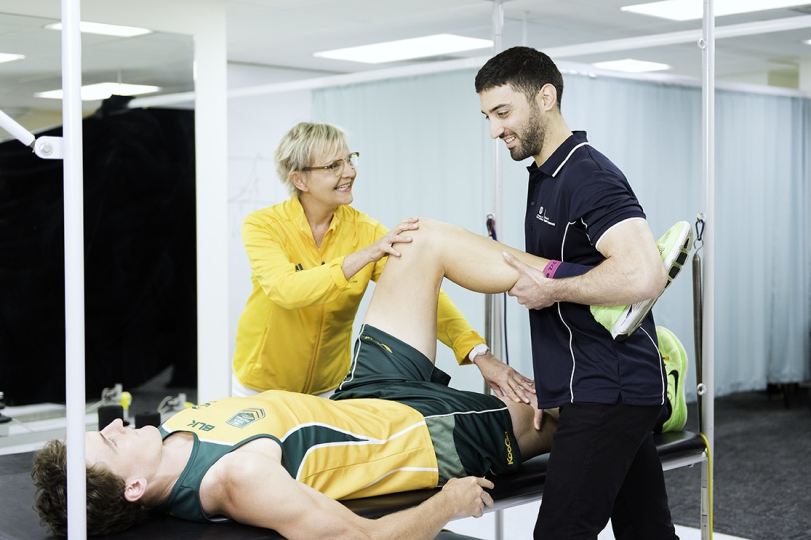

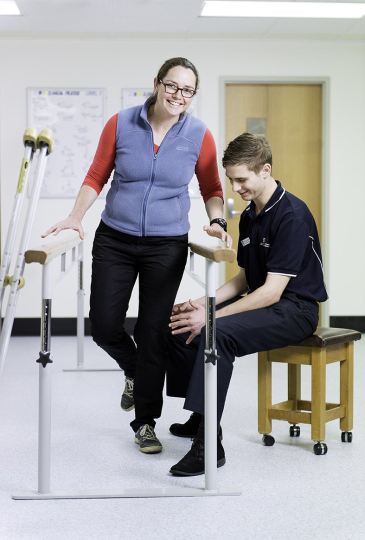
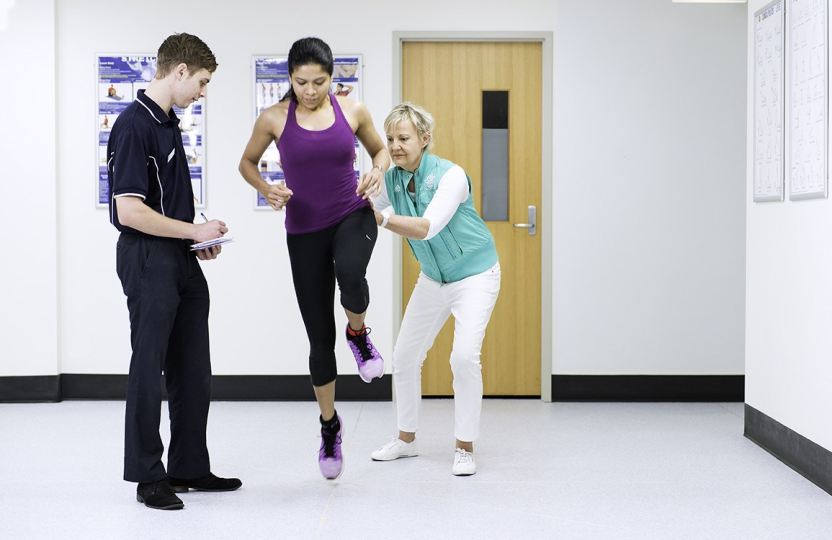
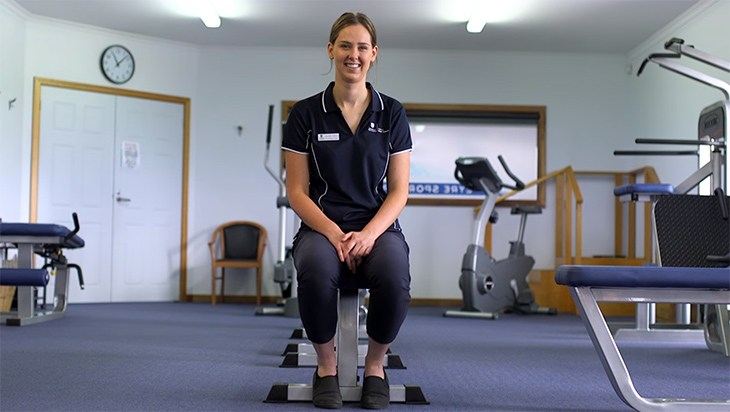
Bachelor of Physiotherapy student Danielle shares her experience of her rural placement at Sports Physiotherapy in Port Lincoln, supported by UniSA’s Department of Rural Health.
